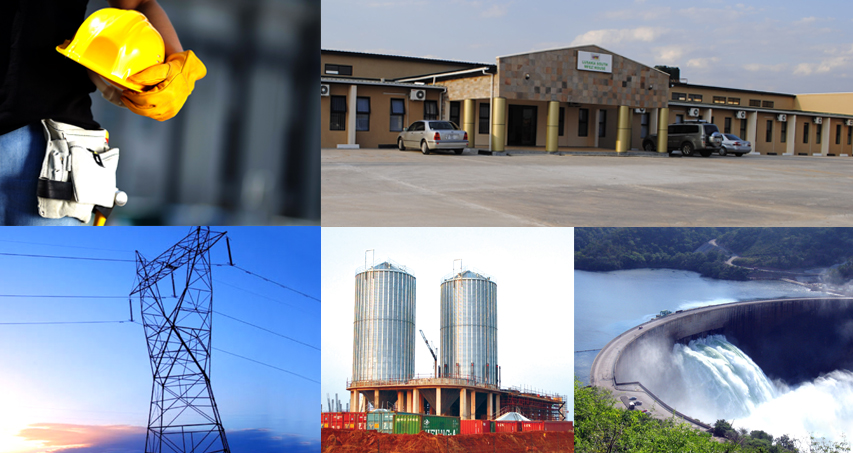| Home » Articles » Notebook |
There have also been complaints about foreign managers who prefer to hire their fellow countrymen in professional or management positions rather than employ Zambians. Chinese, South African and Indian nationals who have played a key role in construction and the mining sectors as well as in the manufacturing and retail sectors have been accused of this practice. Government has pledged to crack down on ‘provocative and disrespectful’ foreign managers who discriminate and abuse Zambian workers. Government says it remains open to foreign manpower to complement the local workforce where there is a genuine skills shortage, however, companies must consider Zambian workers to take on jobs that they aspire to if they are qualified. Immigrants should not deprive a Zambian of employment. At a time when the new government is in a hurry to create employment, more people are asking that it introduce special quotas for jobs that can be undertaken by foreign nationals. Even as the economy has grown consistently at 6.5 percent over the past decade, Zambians are not getting the opportunities they deserve because not enough jobs are being created by businesses who have continued to bring in foreign ‘experts’ to fill their posts. Audit foreign workers Kennedy Simenda, Customer Service manager Ministry of Home Affairs in the department of Immigration spoke to Commerce Gazette on the role foreign workers plays in the Zambian economy. He says foreign workers are only allowed to enter the Zambian labour market to fill a clear gap in skills. He says it should not be an excuse to import labour to take up posts that could be filled by Zambians. Government wants to ensure that the immigration system works in the interests of Zambians. To this effect government has repealed the old immigration Act and replaced it with a new one that grants 12 different kinds of permits. Under the new Act the Immigration department issues two types of work permits, a temporary permit that is valid for six months and an employment permit valid for two years. Simenda says that the Immigration department only allows foreign professionals to work in Zambia after they have been cleared by professional boards such as the Zambian Institute of Chartered Accountants, Law Association, Engineering Institute of Zambia, Engineering Registration Board and the Medical Council of Zambia among many other institutions. He says immigration has to consider that companies may have certain interests in their operations in fields like accounting which are core to a their venture that justifies permits being given to foreign national despite Zambian being inundated with qualified professions in this field. He cautions that while these concessions are made, it does not mean a whole department can be staffed with foreign nationals. To ensure transparency in the granting of work permits a Immigration Permit Committee administers their processing. Investigating complaints on foreign labour Addressing criticism that the Chinese have entered Zambia to rear chicken, Simenda says Zambia has guidelines and policies for investment in key sectors among them agriculture. He argues that foreign investors in agriculture are allowed to participate in the whole process of farming including the selling of chickens that they produce. He says the Immigration department facilitates investment in the health, mining, and construction sectors where it allows foreign nations to participate fully to achieve their investment goals. ‘We have however, seriously discouraged foreign national from participate in trading. We don’t issue any permits for foreigners to trade therefore, those found trading maybe in breach of their permit conditions. ‘The risk management and compliancy unit ensure that people comply with the conditions set out in the permits that they are given. If you’ve been given a permit to work in mining and then you are found selling in a shop that is contrary to your permit and the law. Straightforward these people will be punished or have been deported out of the country,’ Simenda says. Inspections are conducted on a regular basis and are sometimes performed jointly with these other stakeholder institutions to enforce on compliance. In addition to prohibiting foreigners working in certain sectors immigration approvals work permits with conditions that skills are transferred to Zambian nationals. Simenda says companies are advised that within a set period of a year or two a Zambian understudy should be proficient at the task to take over from the foreign worker whose permit will have be expiring. ‘Our expectation is that we should not see an application for extension. Of course there are exceptions to the rule that may allow a foreign worker to extend their time in Zambia but the norm is for them to return to their country of origin once the permit has expired.’
Simenda says a visa is authority to enter a country and not authority to stay. Some nationals can get a visa at the point of entry. Simenda says, Zambian should take pride in the fact that immigration does not allow entry to every Jim and Jack. The emphasis when it comes to visas is the protection of the Zambian nation. ‘When fixing these visa fees we don’t just wake up and come up with an arbitrary cost, we perform a comparative study within the region and further abroad, among other considerations. The visa fees that we are charging as Zambia are not anything that we can say is expensive. Some neighbouring countries charge far much more than us.’ Zambia charges US$50 for an entry visa that takes about five working days to process. Simenda says immigration is interested in working on an efficient and effective way of processing visas to prevent tourists’ travel plans from being delayed. Zambia has bilateral agreements with most of its neighbours where there is a reciprocal understanding that a visa is not required on entry between the two countries. Adding numbers Indian nationals recorded the highest numbers in approved investment permits seconded by the Chinese. A total of 10,596 work permits were issued and immigration detained a total of 2,774 foreign nationals on various visa violations. 2,600 foreign nationals were also deported back to their countries. Simenda says deported nationals can appeal their expulsion to the minister of Home Affairs who is the only person that can rescind a deportation decision.
| |
| Views: 9489 | |
| Total comments: 0 | |



 Rocketing labour tensions have proven a headache for government and the labour unions. Swollen unemployment has seen an increase in hostilities between investors and their local employees as the wealth gap between them appears to have increased.
Rocketing labour tensions have proven a headache for government and the labour unions. Swollen unemployment has seen an increase in hostilities between investors and their local employees as the wealth gap between them appears to have increased.